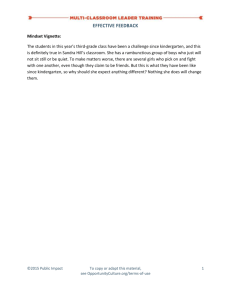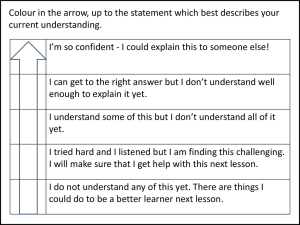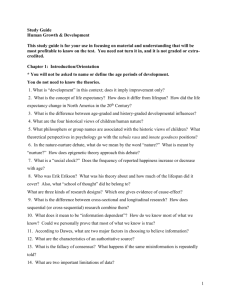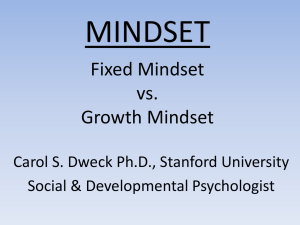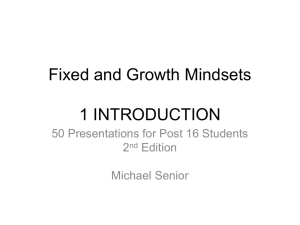Mindset presentation, chapter 3
advertisement
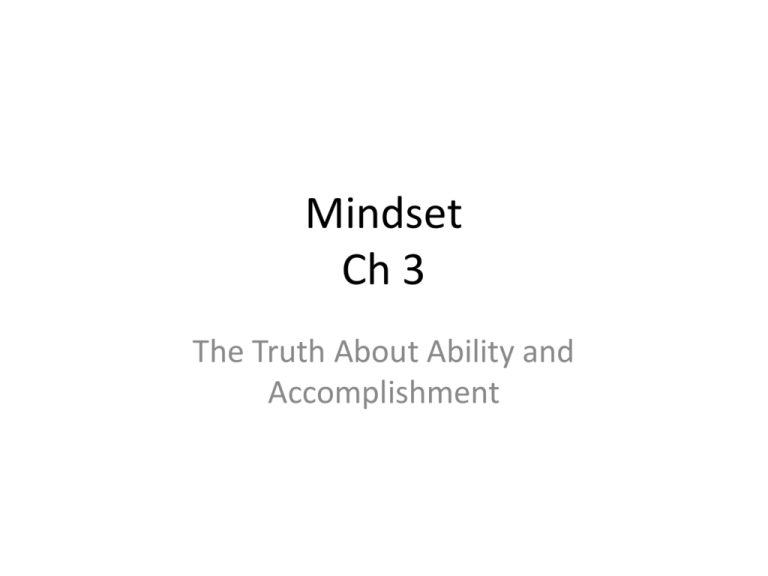
Mindset Ch 3 The Truth About Ability and Accomplishment “Geniuses” • Edison- while inventing the lightbulb, he had thirty assistants. • Darwin- The Origin of Species took him half a lifetime of dedication and cooperation with colleagues to complete. • Mozart- each of his pieces took more than ten years to complete. Mindset and School Achievement • The grades of the students with fixed mindsets declined as they entered junior high. • The grades of those students worsened in the two years of junior high. • Students with growth mindsets had an increase in their grades over the two years. Fixed Mindset • Explained the reasons for their poor grades as if they were based on ability. • Examples: “I am the stupidest” or “I suck in math” • Many played the blame game. • Those students called their teachers names, which does not solve the problem. Growth Mindset • Students with the growth mindset mobilized their resources for learning. • Although at times they felt overwhelmed, they decided to do whatever it took to learning-wise to get a good grade. The Low-Effort Syndrome • Students with the fixed mindset avoid hard work. • They usually try to take the easy way out, so they will not have to work hard. The College Transition • How fixed minded students study: – Read the textbook and their class notes – If the material is difficult, they reread – Sometimes, try to memorize the material instead of trying to learn it Students with the Growth Mindset looked for themes in their notes and went over mistakes until they understood them. Created Equal? • Some children are born with more heightened abilities than others. • Although children with average abilities can become very accomplished with effort. Can Everyone Do Well? • If the teacher teach students with the growth mindset, more students will benefit and learn. • Teachers with the fixed mindset don’t help students fulfill their full potential. Is Artistic Ability a Gift? • People can develop their intellectual abilities over the years. • Students were able to learn to draw almost perfectly in only five days and they were classified by their instructor as a typical group. • “Just because some people can do something with little or no training, it doesn’t mean that others can’t do it with training” The Danger of Praise and Positive Labels • Students who were praised on their ability did not want to try new and challenging task. • Students who were praised on their effort, 90% of them wanted to try the challenging tasks. • Fixed mindset – “ To be good is to fail. To be very good is to fail. … The only thing not a failure is to be great.” The Danger of Praise and Positive Labels Cont’d • Praising on ability lowers a person’s IQ, but praising on effort raises the IQ of a person. • “Telling children they’re smart, in the end, made them feel dumber and act dumber, but claim they were smarter. Negative Labels and How They Work • In the fixed mindset, both positive and negative labels have a bad effect. • When given a positive label, you are afraid of losing it and when are hit with a negative label, you are afraid of deserving it. Do I Belong Here? • Can women be good at math? – Growth mindset- believe math is an ability that can be improved- felt a sense of belonging. – Fixed mindset- the stereotype lowered their confidence and they felt as if they could not do math. When Things Go Right • The growth mindset allows people to use and develop their minds fully, even those who are targets of negative labels. • They are not limited by thoughts, fear of not belonging, or that people can define them.

